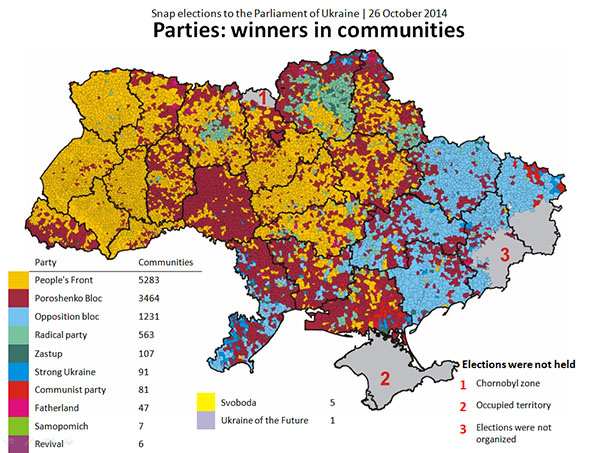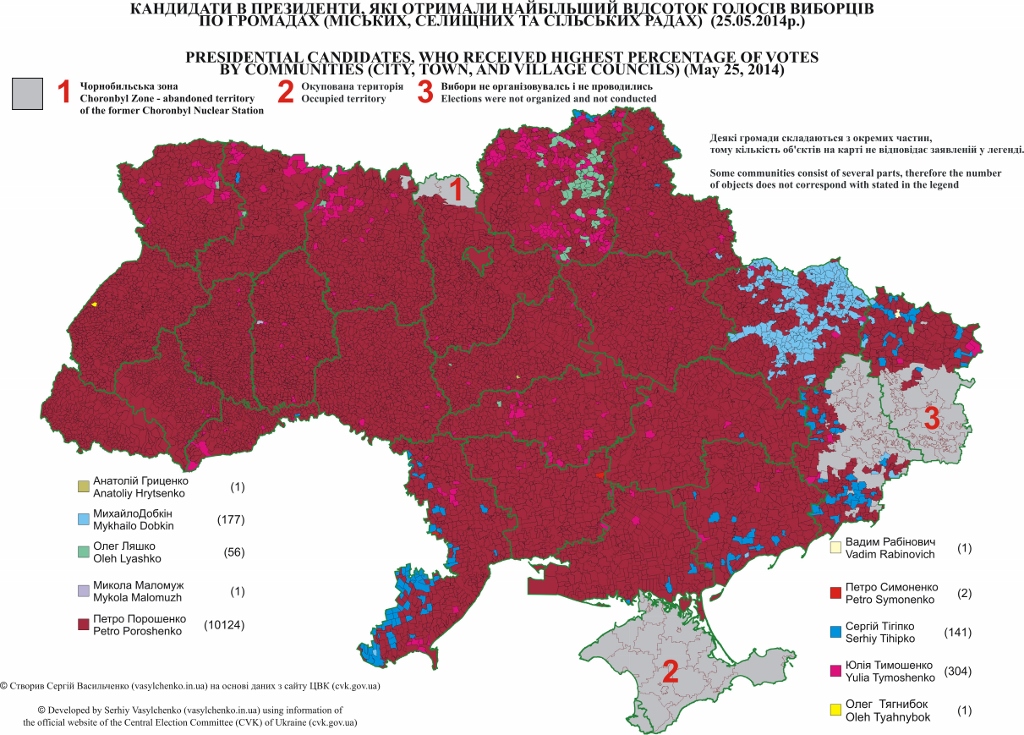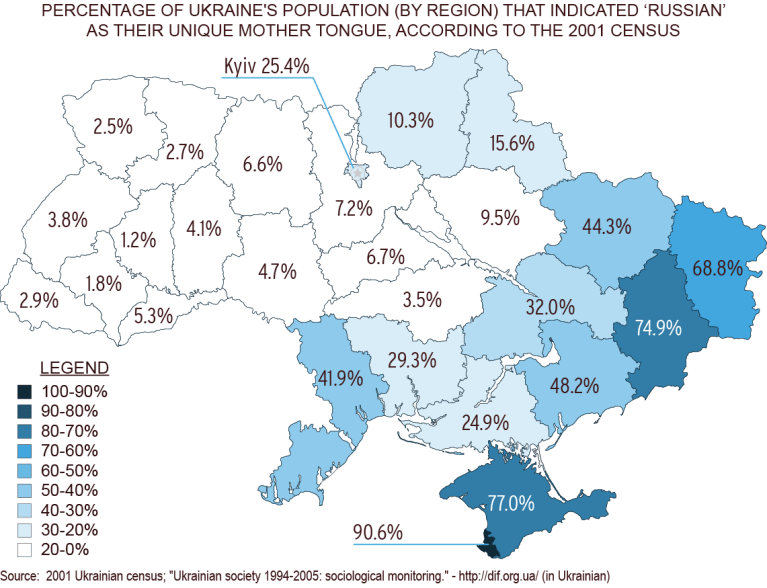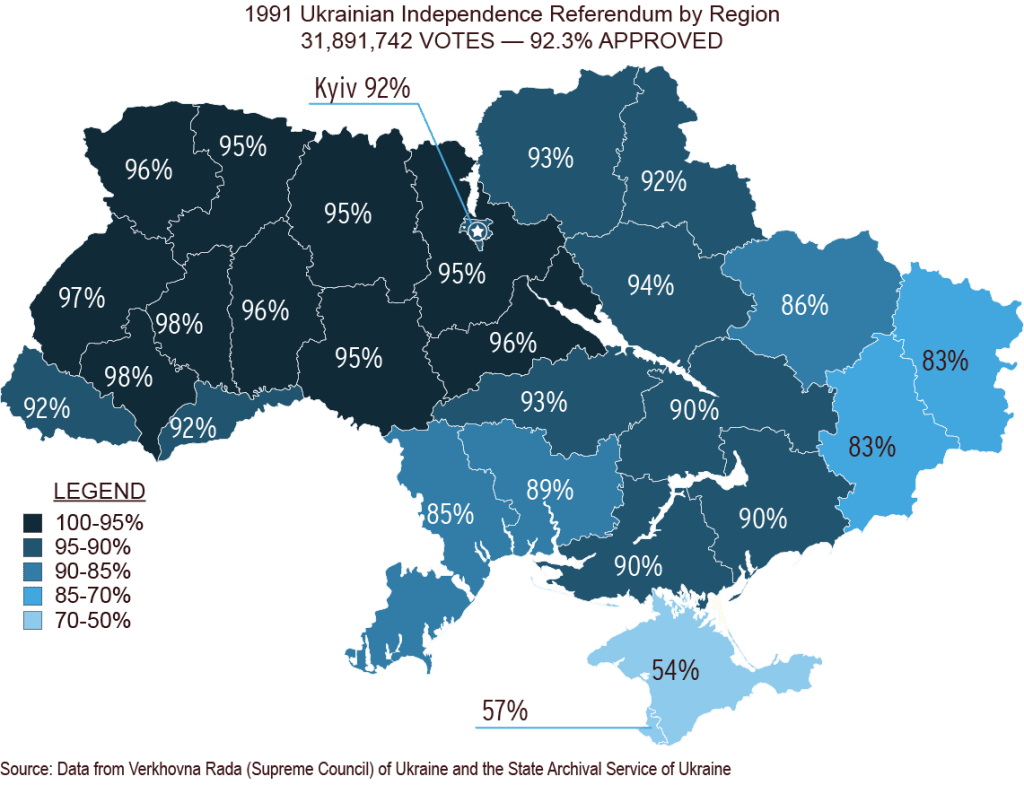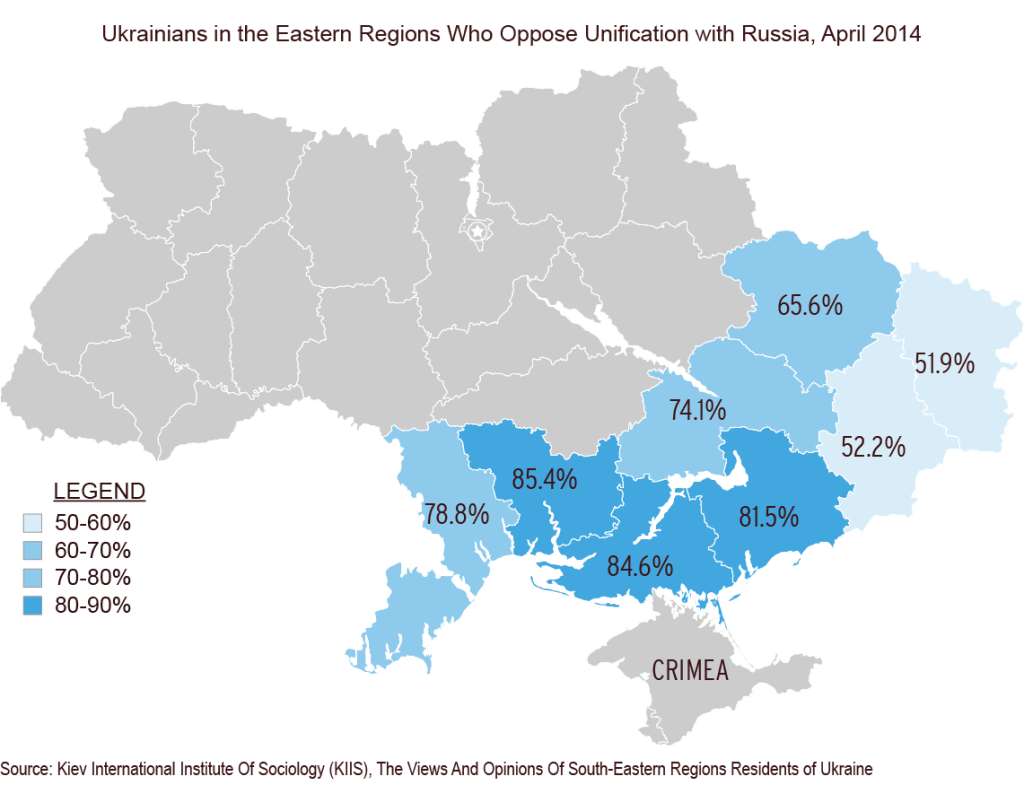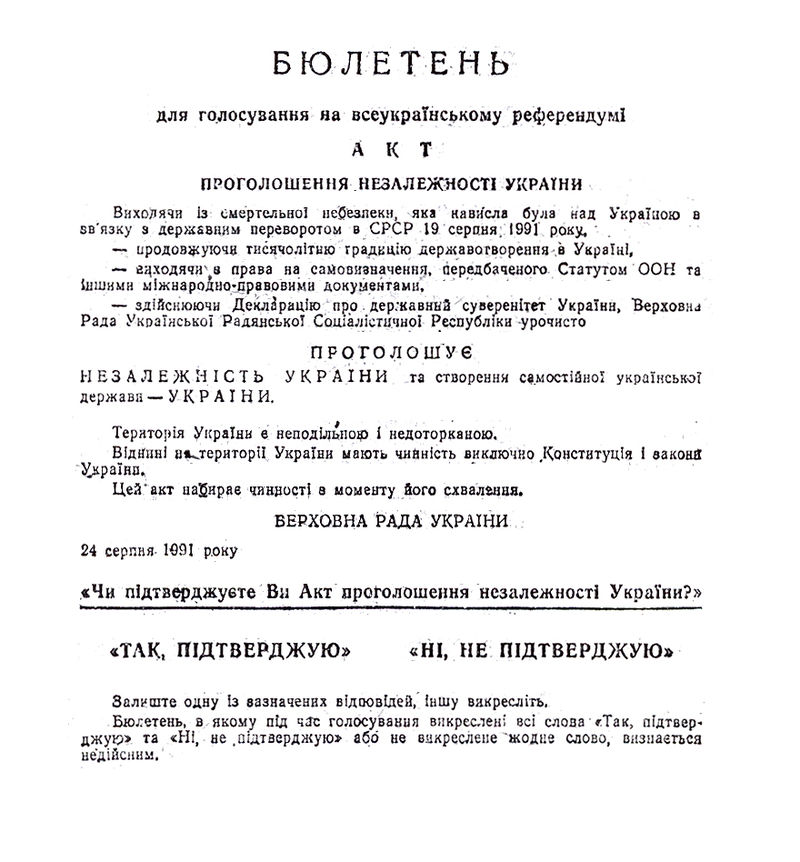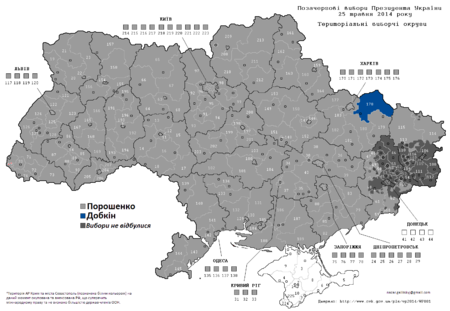I don't want to get sidetracked into a discussion about Ukrainian history. I'm sure it's a very interesting topic and that you know much about it. But, I posted that map to show that, regardless of what they were referred to, there was a distinction made between the people of present-day Ukraine and Russia. If they were exactly the same in every way and they had no unique identity whatsoever, there would have been no distinction made at all. None. That was my only point.
I only take issue with your assertion that "half of Ukraine" wants to join Russia. Some do, yes. But not "half".
A new election has been held. Please use a current map. The pro-Russian opposition didn't do so well (even if we assume that the separatist controlled areas of Luhansk and Donetsk would have voted for it):
The Presidential election went even worse for the separatists. I find it interesting that so many of them voted for Poroshenko, even in the east:
Even Putin acknowledged both the election and its result:
"Vladimir Putin has given the strongest indication yet that Russia is defusing its policy towards Ukraine, saying that Moscow will "respect the choice of the Ukrainian people" and work with the country's government after a new president is elected on Sunday."
https://www.theguardian.com/world/2014/may/23/russia-ukraine-vote-vladimir-putin-president
Just as importantly, voting for a pro-Russian party does not mean that those people favor joining Russia. Only that they favor closer ties and cooperation with the country.
You keep posting surveys and polls (without links). They're no replacement for a proper
census. Here's what the census showed in regards to people's primary language:
Unsurprisingly, only in Crimea, Donetsk, and Luhansk are there a majority of people who identify that way. And as the map in my previous post showed, they make up an outright majority in few individual communities.
And just as importantly, simply speaking Russian does not mean that these people want to join Russia:
"In an audio clip from within Freeland’s essay, she highlights “one of the smartest and most effective things” Putin’s propaganda machine did was to frame the conflict in Ukraine as a civil war “between Russian-speaking Ukrainians and Ukrainian-speaking Ukrainians.” Freeland emphasizes that “that was never true.”
She explains that “while the linguistic factor is real, it is often oversimplified in several respects: Russian-speakers are by no means all pro-Putin or secessionist; Russian- and Ukrainian-speakers are geographically commingled; and virtually everyone in Ukraine has at least a passive understanding of both languages."
http://csweb.brookings.edu/content/research/essays/2015/myukraine.html
In 1991, the people of Ukraine voted for their own country, not Russia:
And until another vote is held, your words don't mean much. It seems that not too much has changed since then:





